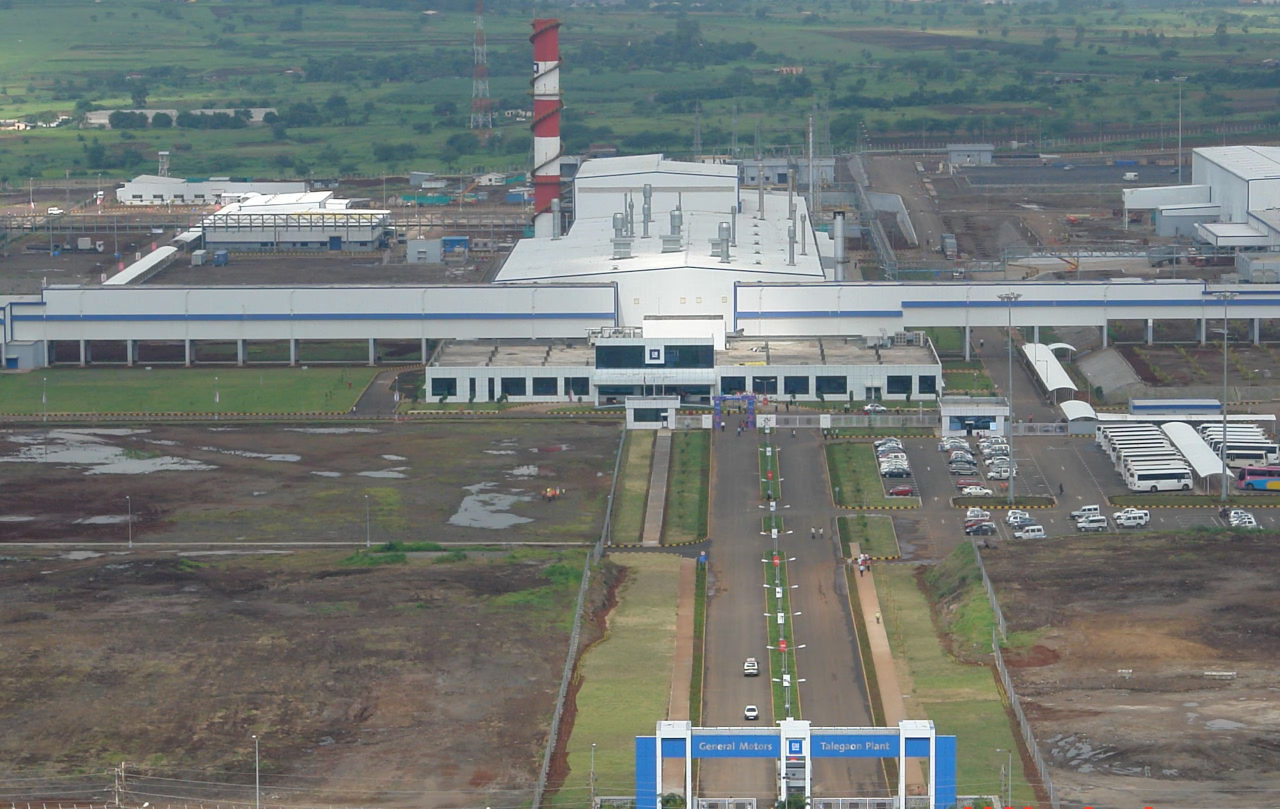Hyundai to acquire GM's auto plant in India
With planned acquisition, Hyundai, Kia’s combined production capacity to exceed 1 million units in world's 3rd largest car market
By Byun Hye-jinPublished : March 14, 2023 - 15:33

Hyundai Motor Group said Tuesday it is in the early stage of signing a deal to acquire General Motors’ car manufacturing plant in India, the world’s third-largest car market.
The Indian unit of Hyundai Motor has signed a term sheet with GM to acquire its automobile plant in Talegaon, the western state of Maharashtra, India. It is the first time that the local unit is seeking an acquisition of its industry rival’s manufacturing facilities since it made foray into India in 1996.
“After agreeing on more detailed including, the final deal size and tax benefits from the state government, we can either form a provisional or an official agreement,” said an official from the carmaker’s Seoul headquarters. A term sheet is a legally-binding document that lays out terms and condition of a deal.
Once the deal is finalized, Hyundai is expected to expand its annual production capacity in India to some 900,000 units, including 760,000 units in its two existing plants in Chennai and 130,000 units in the to-be acquired GM plant.
“The three plants are expected to beef up production volume overall,” the official said, hinting at a possible expansion in the production lines of the GM plant.
Combined with the production volume of its smaller affiliate Kia’s two plants in India, the total production capacity of Hyundai Motor Group could surpass 1 million units per year.
Hyundai’s acquisition deal came as GM’s previous agreement with Baoding, China-based Great Wall Motors fell through last year. Its Talegaon plant has been shut down since October 2020 after the automaker withdrew from India in 2017.
For the carmaker, India has emerged as a strategically important market following the US and Europe, amid sluggish sales in other key markets such China and Russia due mostly to geopolitical risks.
As of last year, the US took up 22 percent of Hyundai’s global sales, followed by Europe’s 16 percent and India’s 12 percent. China’s portion plummeted to 6 percent, less than half of the 20 percent logged about a decade ago.
India has become the third-largest market for Hyundai, with a record 807,067 unit sales last year.
With the planned acquisition, the Korean carmaker is betting big on the growth potential of the Indian car market. Last year, car sales in India jumped 25.7 percent to 4.7 million vehicles, the third largest globally after China and the US. In the burgeoning Indian market, Hyundai is the No. 2 brand with an almost 10 percent market share.
“India’s burgeoning auto market has been fueled by the government’s commitment to boost the manufacturing sector,” said Park Cheol-wan, a car engineering professor at Seojeong University. “But due to high corporate tax imposed on foreign car brands, it is advantageous to build plants in India.”
This year, Hyundai aims to sell around 876,000 cars in India. It has already sold over 150,000 vehicles, a 19.8 percent jump from a year earlier, during the January-February period.
It plans to accelerate sales of car models ranging from small sedans and sport utility vehicles to electric cars.
The fully remodeled version of the small sedan All New Verna, exclusively made for India, was launched on March 9. Its smallest crossover SUV Casper will make a debut as well. Following its small-sized electric SUV Kona Electric, Hyundai rolled out its flagship electrified SUV Ioniq 5 in Feburary, logging 33 unit sales that month. Kia’s EV6 is next in line to be sold in India this year.
By 2030, the Indian government aims to increase EV sales to take up 30 percent of total car sales from the current 2 percent. It is expanding EV charging infrastructure within the nation and offering EV subsidies for car manufacturers.



![[Herald Interview] 'Amid aging population, Korea to invite more young professionals from overseas'](http://res.heraldm.com/phpwas/restmb_idxmake.php?idx=644&simg=/content/image/2024/04/24/20240424050844_0.jpg&u=20240424200058)













![[KH Explains] Korean shipbuilding stocks rally: Real growth or bubble?](http://res.heraldm.com/phpwas/restmb_idxmake.php?idx=652&simg=/content/image/2024/04/25/20240425050656_0.jpg&u=)

